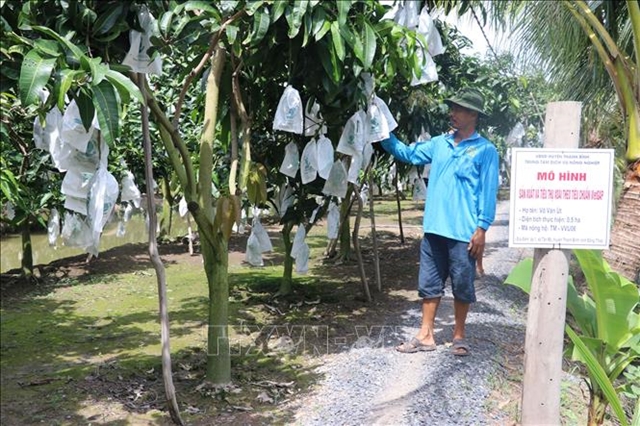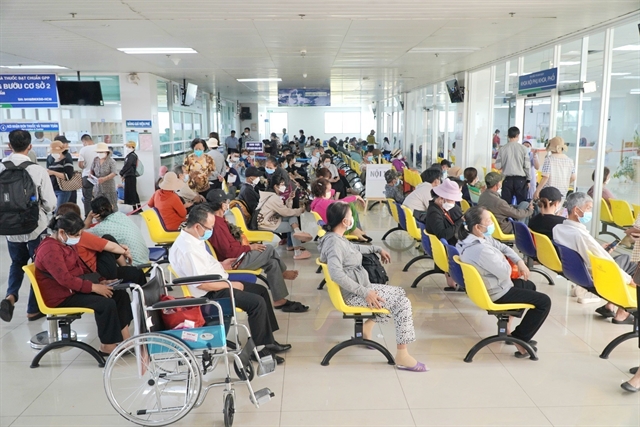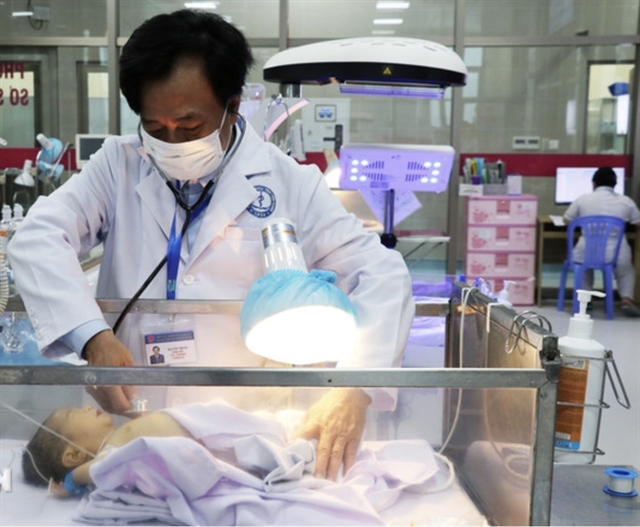 Opinion
Opinion

 |
| Deputy Minister of Foreign Affairs Đặng Hoàng Giang. — VNA/VNS Photo |
Deputy Minister of Foreign Affairs Đặng Hoàng Giang, who led Việt Nam’s negotiating delegation for the United Nations Convention against Cybercrime – the Hanoi Convention – spoke with a VietnamPlus reporter about the country’s contributions to the convention, the path to hosting its signing ceremony and the opportunities and challenges ahead as Việt Nam deepens its engagement in global digital governance.
When did Việt Nam join the negotiations and what were its key contributions?
Việt Nam is entering a new era of the nation’s rise – a period of advancement, modernisation and prosperity. As General Secretary Tô Lâm has emphasised, what matters most is keeping the country 'peaceful inside and stable outside,' maintaining a stable environment so that all national resources can be channelled into development.
Yet traditional and non-traditional security threats continue to evolve. Among them, cybercrime has become one of the most dangerous, putting national sovereignty and global stability at risk. Confronting it requires coordinated cooperation at the national and international levels, bringing together governments, organisations and citizens in a shared global effort.
It was in this context that, in 2019, the United Nations launched the drafting of the Convention against Cybercrime – the first comprehensive UN instrument in this field.
From the outset, Việt Nam gave its full support to this initiative, recognising the need for a global framework to ensure security and accountability in cyberspace.
Between 2022 and 2024, under authorisation from the State President, the Government’s inter-ministerial delegation, with the Ministry of Public Security and the Ministry of Foreign Affairs at its core, actively participated in all eight rounds of negotiations.
The process culminated on 24 December 2024, when the UN General Assembly formally adopted the convention.
Việt Nam’s approach reflected a broader foreign-policy vision: to elevate multilateral diplomacy and play an active role in shaping international legal frameworks that protect national interests.
Việt Nam worked to ensure that the convention includes foundational principles such as respect for national sovereignty and independence, non-interference in internal affairs and compliance with international law. These are essential to ensuring that international cooperation against cybercrime respects the legitimate rights of all states.
During negotiations, Việt Nam also served as coordinator in several key discussions, helping to broker consensus on complex provisions. Our constructive approach was praised by the international community, helping to ensure the final text was compatible with Việt Nam’s legal and institutional frameworks.
How was Việt Nam selected to host the signing ceremony and what message does it wish to convey as host?
Securing the UN General Assembly’s decision to choose Hà Nội as the venue for the signing ceremony and for the Convention to bear the name Hanoi Convention marks an important milestone in Việt Nam’s multilateral diplomacy.
The campaign to host the event began immediately after the convention was adopted by the Negotiation Committee and the General Assembly in late 2024. It was a sustained and determined diplomatic effort, conducted simultaneously at multiple levels and in many capitals, especially in countries and regions that play central roles in network and digital technology. The goal was to secure broad consensus and support for Việt Nam’s proposal.
By hosting this major multilateral event, Việt Nam hopes to reaffirm its position as a reliable partner, underscoring its strong commitment and sustained efforts to advance multilateral cooperation.
We will do everything possible to ensure the signing ceremony meets the highest UN standards: dignified, inclusive and professionally organised.
The event is expected to attract broad participation from UN member states, international organisations, civil society and major technology companies. As host, Việt Nam will also be among the first group of countries to sign the convention.
We hope the signing ceremony in Hà Nội will bring together at least 40 countries, sending a strong political signal of commitment to early ratification and implementation. According to the UN Office on Drugs and Crime (UNODC), the convention is expected to enter into force in 2027, and Việt Nam will work to ensure that momentum continues until then.
Beyond the signing, Việt Nam plans to host forums and side events focusing on the Convention’s main pillars and priorities. These discussions will help interested countries strengthen their domestic legal frameworks and share best practices in tackling cybercrime.
We believe that with its proven capability and experience across many international processes, Việt Nam is well-positioned to meet the expectations of the global community by advancing multilateral cooperation and collective action to address the major global challenges, including the growing threat of cybercrime.
What opportunities and challenges does this convention bring for Việt Nam’s engagement in cyberspace?
The convention opens up enormous opportunities. Non-traditional security threats, especially in cyberspace, cannot be addressed by any single country.
By helping lead global efforts against cybercrime, Việt Nam can tap into international expertise, technology and resources to build a secure and peaceful environment for national development.
It will also allow Việt Nam to benefit from the experiences and advanced technologies of other countries and international organisations, improving our own capacity to detect, prevent and respond to cyber threats.
Hosting and implementing the convention will also expand multilateral cooperation beyond cybersecurity itself. Additionally, it also offers a valuable opportunity to showcase Việt Nam’s image: a peaceful, dynamic country with a strong cultural identity and a welcoming people.
But every opportunity brings challenges. Adoption of the convention is only the first step; implementation is the real test. What matters most is how countries sustain the political will to work together in practice. Building common ground and strengthening ties will take time and determination.
For Việt Nam, there will be domestic challenges too. We must continue refining our institutions, improving our laws and developing the capacity needed to cooperate effectively with international partners. Cybercrime evolves rapidly, and so must our response.
Ultimately, the decisive factor is human capability. Every official, every citizen, must strengthen their understanding, skills and resilience to participate confidently in global cooperation against cybercrime. — VNS




